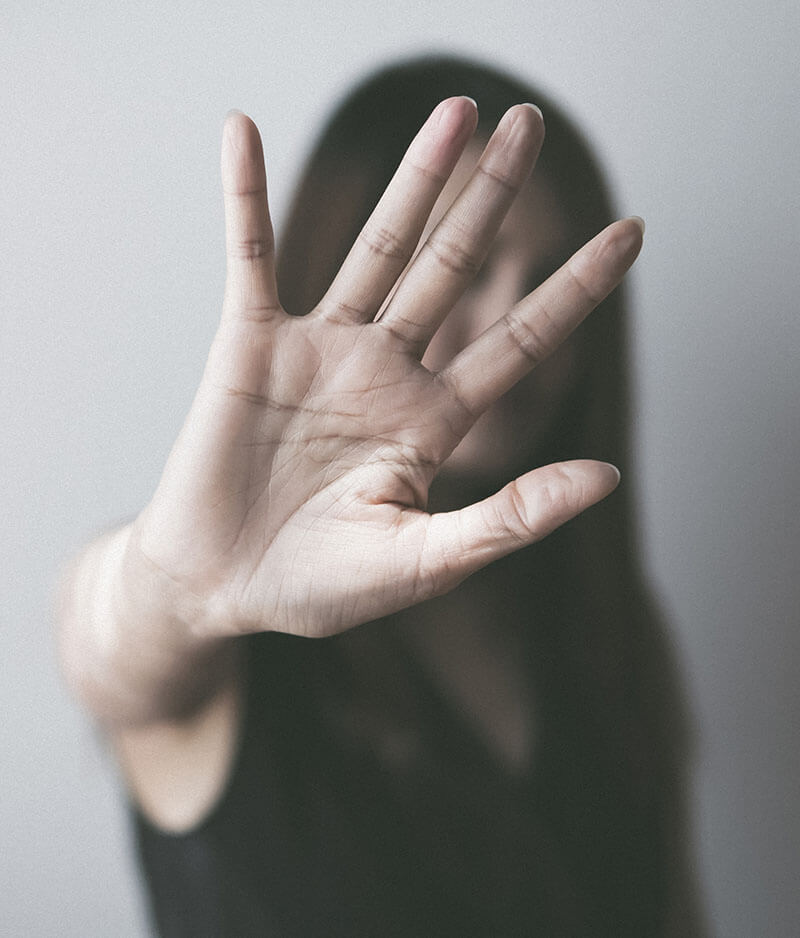Am I A Victim?
Domestic violence can happen to anyone
The problem is often overlooked, excused, or denied. This is especially true when the abuse is psychological, rather than physical. Noticing and acknowledging the signs of an abusive relationship are the first step to ending it. No one should live in fear of the person they love. If you recognize yourself or someone you know in the following warning signs and descriptions of abuse, reach out. There is help available.
Do you...
- Sometimes feel scared of how your partner will act?
- Constantly make excuses to other people for your partner’s behavior?
- Believe that you can help your partner change if only you changed something about yourself?
- Try not to do anything that would cause conflict or make your partner angry?
- Feel like no matter what you do, your partner is never happy with you?
- Stay with your partner because you are afraid of what your partner would do if you broke up?
Does your partner...
- Embarrass you with bad names and put-downs?
- Look at you or act in ways that scare you?
- Control what you do, who you see or talk to, or where you go?
- Stop you from seeing or talking to friends or family?
- Take your money or Social Security check, make you ask for money, or refuse to give you money?
- Tell you you’re a bad parent or threaten to take away or hurt your children?
- Destroy your property or threaten to kill your pets?
- Intimidate you with guns, knives, or other weapons?
- Shove you, slap you or hit you?
- Force you to drop charges?
- Threaten to commit suicide?
- Threaten to kill you?

If you checked even one, you may be in an abusive relationship.
If any of these situations are happening in your relationship, talk to someone you trust or call the Crisis Center for South Suburbia 24-Hour Hotline: 708-429-7255.
Without help, the abuse will continue.
How can I tell a fight from abuse?
Disagreements occur in most relationships. Sometimes those arguments are loud and people say things that hurt each other’s feelings. However, in most relationships, adults say they are sorry and make up. No one gets physically hurt. When there is abuse, one person uses power and control to get what they want out of the relationship. There may or may not be physical abuse in the relationship, but the threat of harm is present.
It is still abuse if…
- The incidents of physical abuse seem minor when compared to those you have read about, seen on television, or heard other women talk about. There isn’t a “better” or “worse” form of physical abuse; you can be severely injured as a result of being pushed, for example.
- The incidents of physical abuse have only occurred one or two times in the relationship. Studies indicate that if your spouse/partner has injured you once, it is likely he will continue to physically assault you.
- The physical assaults stopped when you became passive and gave up your right to express yourself as you desire, to move about freely and see others, and to make decisions. It is not a victory if you have to give up your rights as a person and a partner in exchange for not being assaulted!
- There has not been any physical violence. Many women are emotionally and verbally assaulted. This can be as equally frightening and is often more confusing to try to understand.
Source: Breaking the Silence Handbook




